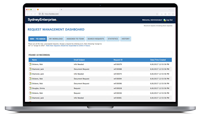Intentional Growth: Special Librarian Professional Goals for 2025
Lauren Hays
Every year, I must set professional development goals as part of my job. At times, I find this process difficult because while there are always things I want to learn, I am never sure what the year will bring or what I may find necessary.
If you are also required to set professional development goals, or if it is a practice you find professionally useful, I want to offer some ideas.
Using Competencies for Information Professionals from the Special Libraries Association (SLA), I encourage you to think about how you can set a goal in each core competency.
Core Competencies for Special Librarians and Information Professionals
The core competencies outlined by the SLA are:
- Information and Knowledge Services
- Information and Knowledge Systems and Technology
- Information and Knowledge Resources
- Information and Data Retrieval and Analysis
- Organization of Data, Information, and Knowledge Assets
- Information Ethics
Example goals for each of these strengthening these competencies could be:
Information and Knowledge Services
- Example Goal: Learn about a new training model to teach information literacy.
Information and Knowledge Systems and Technology
- Example Goal: Take a class on information architecture.
Information and Knowledge Resources
- Example Goal: Read a book on critical thinking practices.
Information and Data Retrieval and Analysis
- Example Goal: Participate in a training session on a data visualization tool.
Organization of Data, Information, and Knowledge Assets
- Example Goal: Revise a custom metadata schema to meet current needs.
Information Ethics
- Example Goal: Participate in training on the information ethics of artificial intelligence.
These example goals may not directly align with your needs, but I hope they get you started thinking about new professional goals for 2025.
Professional Development Principles for Special Librarians
If you are still not sure how to proceed with setting your own professional development goals, I want to leave you with a few overarching principles to keep in mind.
- Reflect on your professional life
- Embrace adaptability in goal-setting
- Focus on transferable skills
- Align goals with both personal interests and organizational needs
- Review your current job description
- Review the job description for the job you hope to grow into
- Consider setting short-term and long-term goals
- Diversify your development (e.g. technical skills, people skills)
Lastly, review your goals quarterly. By doing so, you can evaluate your progress, adjust goals based on new information, reflect on unexpected learning opportunities, and ensure you are staying engaged.
Intentional Growth Supports Your Success as a Special Librarian
Setting professional development goals may feel overwhelming, but with the right framework and mindset, it can be a rewarding and empowering process—even if I still struggle with it sometimes! By using SLA Competencies for Information Professionals as a guide, you can set meaningful goals across a wide range of areas. Then, you can pair the SLA Competencies with overarching principles like adaptability, reflection, and diversification.
Goal setting isn’t just about checking off a to-do list; it’s about continuous improvement. Here’s to a year of intentional growth and professional success!
Lauren Hays
Dr. Lauren Hays is an Assistant Professor of Instructional Technology at the University of Central Missouri and a frequent presenter and interviewer on topics related to libraries and librarianship. Please read Lauren’s other posts relevant to special librarians. Learn about Lucidea’s powerful integrated library systems, SydneyDigital and GeniePlus.
**Disclaimer: Any in-line promotional text does not imply Lucidea product endorsement by the author of this post.
Never miss another post. Subscribe today!
Similar Posts
Growing Your Leadership Skills: 7 Tips for Special Librarians
Great library leaders aren’t born—they’re made through learning self-reflection and practice. Here are seven strategies to help you grow and lead with impact.
Keeping Up with Copyright and Generative AI: What Special Librarians Need to Know
As generative AI becomes more prevalent copyright law is evolving to address its impact. A new report from the U.S. Copyright Office provides guidance on what is (and isn’t) copyrightable.
Understanding Shadow AI: Risks Costs and Governance
AI can enhance search discovery and efficiency but unsanctioned adoption—known as “shadow AI”—can lead to budget overruns and compliance risks. Here’s how to evaluate AI pricing models and build a governance strategy that balances innovation with cost control.
Interview with an Author: Fernandez on Streaming Video Collection Development
As demand for streaming video in libraries grows so do the challenges of managing access budgets and licensing. Co-author Michael Fernandez shares key insights from his book “Streaming Video Collection Development and Management”.







Leave a Comment
Comments are reviewed and must adhere to our comments policy.
0 Comments